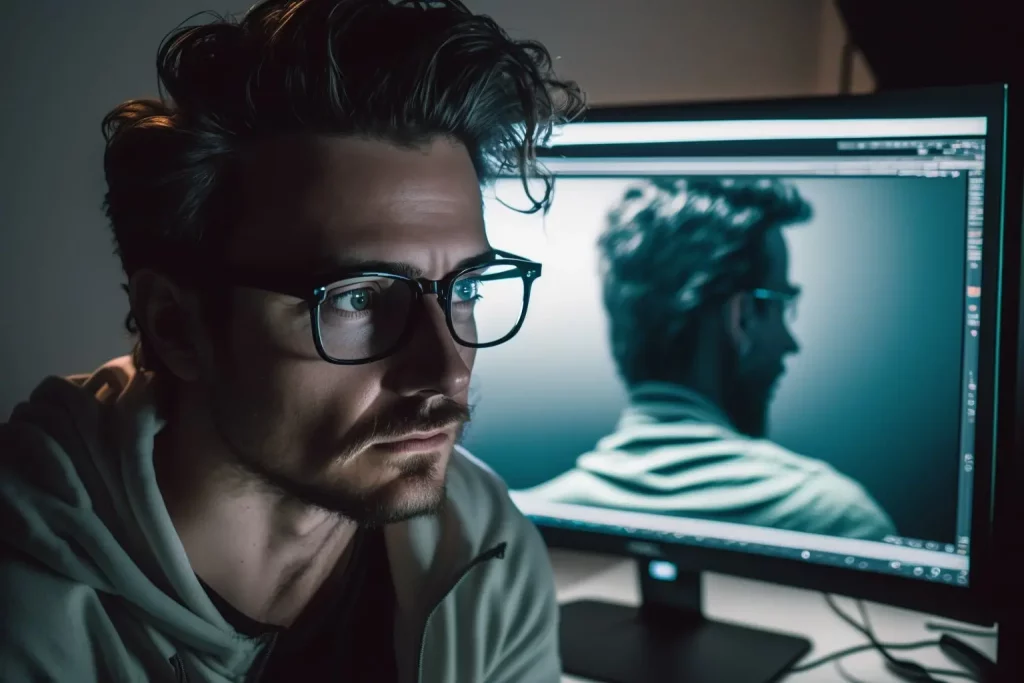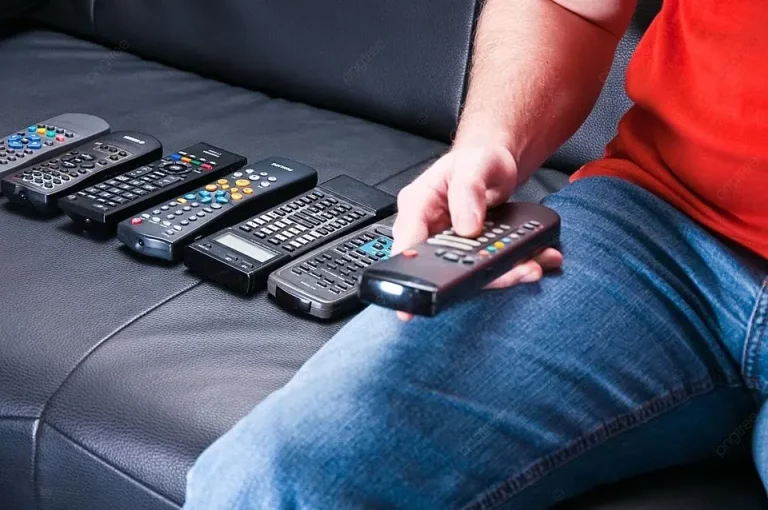Are you spending long hours in front of a computer screen? Are you worried about blue light exposure and its potential impact on your eyes? You’re not alone. There has been a lot of buzz around blue light and its potential risks to our vision.
So, what’s the real deal with blue light and those glasses that claim to protect our eyes from it? Let’s dive in and find out!
The Blue Light Hype: Fact or Fiction?
First things first: is blue light really that bad for our eyes? Well, it’s complicated. Blue light is a type of high-energy visible (HEV) light that has a shorter wavelength than other colors on the visible light spectrum.
This means that it scatters more easily and can penetrate deeper into our eyes. Some studies suggest that overexposure to blue light could cause eyestrain, and headaches, and disrupt our sleep patterns. However, more research is needed to confirm these findings.
So, while the hype around blue light might be a bit overblown, it’s still important to protect our eyes from potential risks.
The Logics Behind Blue Light Concerns
Blue light has a wavelength between approximately 380 and 500 nanometers, making it one of the shortest and highest-energy wavelengths on the visible light spectrum.
This type of light is present in many sources of artificial light, including smartphones, computer screens, and LED lights. In fact, the amount of blue light exposure that we receive from these sources has increased significantly in recent years, as we spend more time indoors and in front of screens.
One of the main concerns about blue light is its potential impact on our sleep patterns. Our bodies have a natural circadian rhythm that helps us regulate our sleep-wake cycle.
Exposure to blue light at night can disrupt this cycle by suppressing the production of melatonin, a hormone that helps us fall asleep. This can make it harder to fall asleep and stay asleep, leading to sleep disturbances and daytime fatigue.
In addition to its potential impact on sleep, some studies suggest that overexposure to blue light could also lead to other eye-related issues, such as digital eye strain, dry eyes, and macular degeneration. However, more research is needed to confirm these findings and determine the exact amount of blue light exposure that is considered harmful.
To protect our eyes from potential risks associated with blue light, there are a few strategies that we can use. One is to reduce our overall screen time and take frequent breaks to give our eyes a rest. Another is to use blue light filters or glasses that block out some of the blue light that enters the eye.
Do Blue Light Glasses Really Work?
Now, let’s talk about those blue light glasses. Do they really work? The short answer is yes, they do! Blue light glasses are designed to filter out a portion of the blue light that enters our eyes, reducing our exposure and potential risks.
However, it’s worth noting that not all blue light glasses are created equal. Some cheaper options might not filter out as much blue light as higher-quality ones. So, if you’re going to invest in a pair of blue light glasses, make sure to do your research and choose a reputable brand.
Who Should Use Blue Light Glasses?
Okay, so blue light glasses do work. But who actually needs them? Well, that depends. If you spend a lot of time in front of a computer screen, especially at night, then blue light glasses could be a good investment.
They can help reduce eyestrain and improve sleep quality by blocking out the blue light that disrupts our natural circadian rhythm. However, if you don’t spend much time on screens, or you only use them during the day, then you might not need blue light glasses as much.
Conclusion: Don’t Be Blue About Blue Light
In conclusion, blue light might not be the devil that some people make it out to be. But it’s still important to protect our eyes from potential risks. If you spend a lot of time in front of screens, especially at night, then investing in a pair of blue light glasses could be a good idea.
Just make sure to choose a reputable brand that filters out enough blue light. And remember, even with blue light glasses, it’s still important to take breaks from screens and give our eyes a rest.
So, don’t be blue about blue light – just be smart about it!
Reference
Biological effects of high-energy visible light – Wikipedia. Link to the resource





